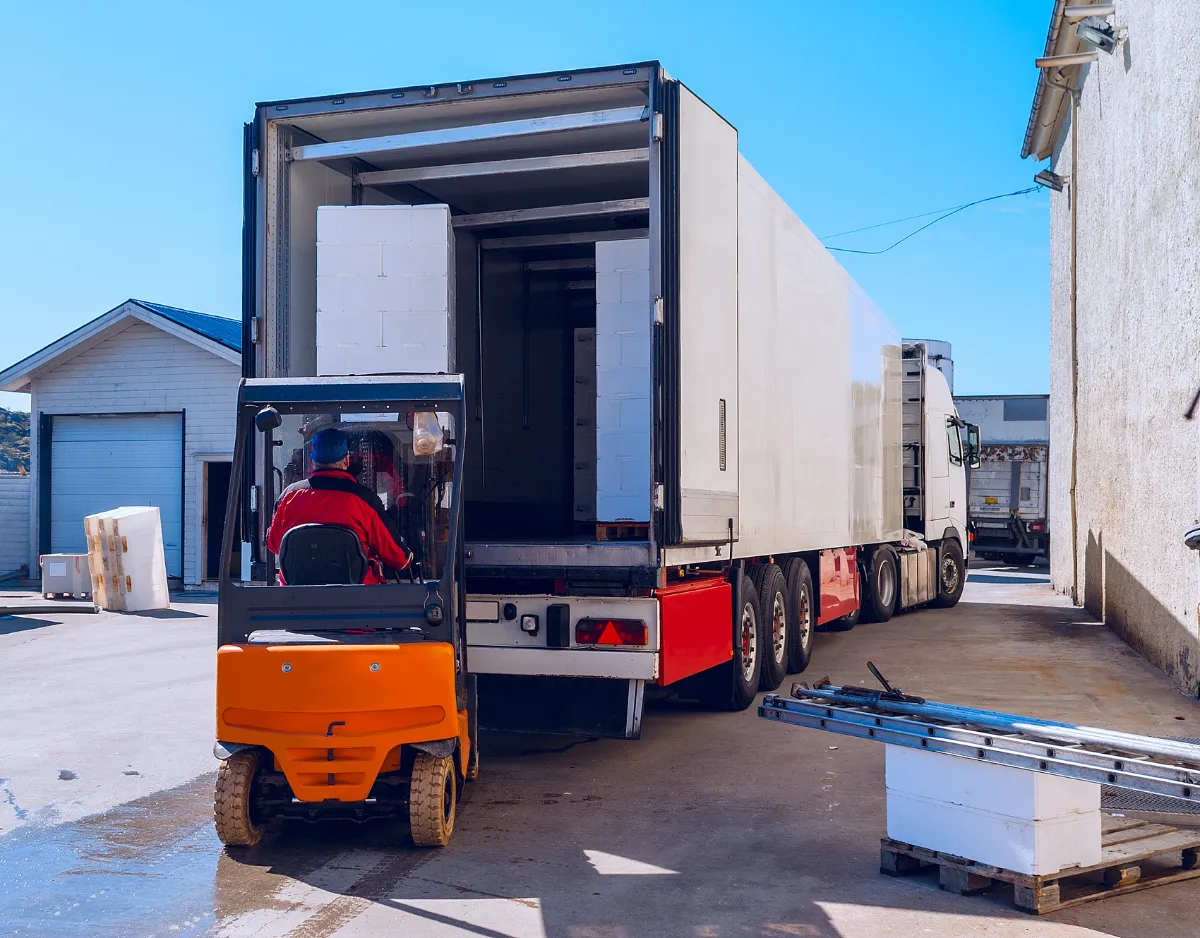Strengthening Logistics Through Professional Support
In an increasingly interconnected global marketplace, businesses of all sizes depend on reliable international shipping solutions. Sea freight remains a vital mode of transport for moving goods across borders, particularly for bulky or high-volume cargo. To make the most of this shipping method, partnering with the right sea freight forwarder is essential. A professional forwarder acts as a bridge between shippers and carriers, managing logistics, documentation, and compliance. By selecting a competent sea freight forwarder, companies can ensure timely deliveries, optimize costs, and streamline supply chain operations.
Understanding the Role of a Sea Freight Forwarder
Logistics Coordination and Route Planning
A sea freight forwarder is responsible for planning and managing the movement of cargo from origin to destination. This includes identifying the most cost-effective and time-efficient routes, selecting carriers, and coordinating with port authorities and inland transportation providers. Effective route planning not only reduces delivery times but also helps manage sea freight costs and avoid unnecessary delays.
Documentation and Regulatory Compliance
One of the most critical functions of a sea freight forwarder is handling the complex documentation required for international shipping. This includes bills of lading, customs declarations, certificates of origin, and insurance paperwork. Ensuring compliance with local and international regulations prevents legal complications and reduces the risk of fines or cargo holds. A forwarder’s expertise in this area contributes to a smoother and more predictable shipping process.

Assessing Experience and Industry Knowledge
Specialized Knowledge of Sea Freight Operations
When evaluating potential partners, it’s important to consider their familiarity with sea freight logistics. A forwarder who understands vessel schedules, container types, shipping lanes, and port-specific procedures will be more capable of managing your shipment effectively. Their operational knowledge can make a significant difference in minimizing risks and keeping your shipping process on track.
Experience in Your Industry or Product Category
Some forwarders specialize in certain industries, such as automotive, electronics, or perishable goods. Choosing a forwarder with experience in handling your type of cargo ensures that they understand the packaging, documentation, and handling requirements specific to your business. This tailored expertise helps reduce errors and align the sea freight process with your operational needs.
Evaluating Network and Carrier Relationships
Global Reach and Local Partnerships
A strong sea freight forwarder has an extensive network of international contacts, including relationships with shipping lines, terminal operators, and customs agents. Their global reach ensures access to multiple carriers and port options, offering more flexibility and better rates. Forwarders with local partners at key ports can resolve on-the-ground issues quickly and efficiently.
Preferred Carrier Agreements
Some forwarders have established agreements with specific carriers, giving them access to favorable rates, guaranteed space, or priority handling. These benefits can translate into cost savings and reliability for your shipments. When selecting a forwarder, it’s useful to inquire about their partnerships and how those relationships could benefit your sea freight operations.
Service Quality and Customer Support
Responsiveness and Communication
Effective communication is vital in managing sea freight logistics. A reliable forwarder should provide clear updates about shipment status, potential delays, and required documentation. Prompt responses to inquiries and a proactive approach to problem-solving demonstrate a forwarder’s commitment to customer satisfaction. Transparent communication also supports better decision-making and budget control.
Customization and Value-Added Services
Not all businesses have the same logistics needs. A good forwarder will offer customized solutions, such as consolidated shipments, temperature-controlled containers, or door-to-door service. Additional services like cargo insurance, warehousing, and digital tracking can enhance overall efficiency. Customization ensures that your sea freight strategy is aligned with your unique requirements and budget.
Technology and Operational Transparency
Digital Tools and Tracking Systems
Modern forwarders leverage technology to improve visibility and efficiency. Features such as real-time cargo tracking, automated alerts, and online booking portals provide transparency and reduce administrative burden. These tools also help shippers stay informed and make timely decisions to manage their sea freight operations effectively.
Integration with Supply Chain Platforms
Forwarders who can integrate their systems with your existing supply chain software offer added efficiency. This integration allows for seamless data exchange, reducing the need for manual input and minimizing errors. Technology-enabled coordination helps maintain consistent documentation and accurate cost reporting throughout the sea freight journey.
Cost Structure and Financial Transparency
Breakdown of Sea Freight Charges
Understanding the cost structure of a forwarder’s services is crucial. Reliable forwarders will provide a detailed breakdown of sea freight charges, including base rates, surcharges, handling fees, and customs duties. Transparent pricing ensures that you can plan your logistics budget more accurately and avoid hidden costs.
Payment Terms and Flexibility
The payment terms offered by a forwarder should align with your company’s cash flow cycle. Some forwarders offer flexible payment options or credit terms for long-standing clients. Understanding payment structures in advance helps prevent disruptions and supports long-term financial planning.
Reputation and Client Feedback
Checking References and Reviews
Client testimonials, case studies, and online reviews offer valuable insights into a forwarder’s performance and reliability. Consistently positive feedback indicates a forwarder’s ability to meet expectations and deliver quality service. Asking for references from current clients can also help confirm their capability to handle your sea freight needs.
Professional Affiliations and Certifications
Accreditation from industry organizations, such as the International Federation of Freight Forwarders Associations (FIATA) or local trade bodies, reflects a forwarder’s commitment to industry standards. Certifications demonstrate adherence to best practices in sea freight management and contribute to greater confidence in their service delivery.
Risk Management and Contingency Planning
Problem Resolution Processes
Even the most well-planned shipments can face challenges. A capable sea freight forwarder will have contingency plans in place to handle issues such as port congestion, customs holds, or schedule disruptions. Knowing how a forwarder addresses these problems helps assess their reliability and preparedness.
Insurance and Claims Handling
Forwarders should offer guidance on selecting appropriate cargo insurance and assist in the claims process if needed. Clear communication about liability and claims resolution builds trust and provides peace of mind. Proper insurance coverage ensures that potential losses do not severely impact your sea freight operations.
Long-Term Strategic Value
Building a Collaborative Partnership
Choosing a sea freight forwarder is more than a transactional decision—it’s a long-term strategic partnership. A forwarder who understands your business goals and growth trajectory can provide logistics solutions that evolve with your needs. Regular performance reviews and strategic planning sessions help maintain alignment.
Supporting Business Expansion
As your business grows and enters new markets, a seasoned forwarder can provide guidance on international trade regulations, new shipping routes, and emerging market opportunities. Their expertise becomes an extension of your team, helping you navigate the complexities of global trade with confidence.
Frequently Asked Questions
What qualifications should I look for in a sea freight forwarder?
Look for forwarders with industry certifications, strong carrier relationships, relevant experience, and a track record of reliable service. Also, prioritize those who offer transparency in pricing and documentation.
How can a forwarder help reduce my sea freight costs?
Forwarders can negotiate better rates, consolidate shipments, and optimize routes. Their industry knowledge helps avoid delays and extra charges, leading to more efficient sea freight operations.
Is it better to work with a local or global freight forwarder?
This depends on your shipping needs. Local forwarders may offer more personalized service, while global forwarders have broader networks and access to international resources. Choose based on the scale and destinations of your sea freight shipments.
Can a sea freight forwarder handle customs clearance?
Yes, most sea freight forwarders offer customs brokerage services or have partnerships with customs agents. They manage the documentation and compliance required for import/export processes.
Table of Contents
- Strengthening Logistics Through Professional Support
- Understanding the Role of a Sea Freight Forwarder
- Assessing Experience and Industry Knowledge
- Evaluating Network and Carrier Relationships
- Service Quality and Customer Support
- Technology and Operational Transparency
- Cost Structure and Financial Transparency
- Reputation and Client Feedback
- Risk Management and Contingency Planning
- Long-Term Strategic Value
- Frequently Asked Questions

 EN
EN







